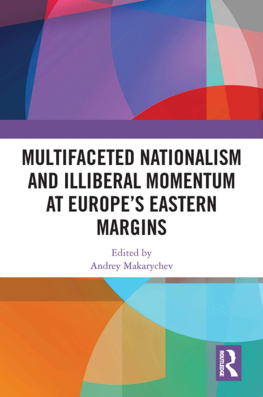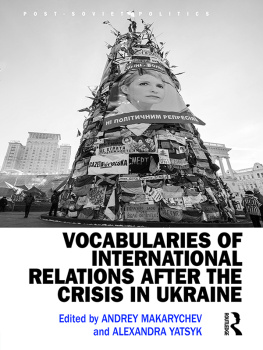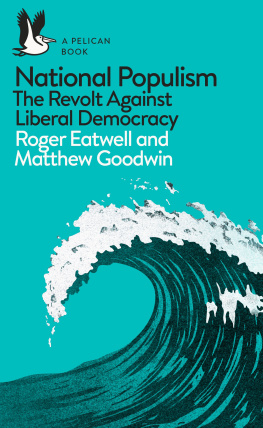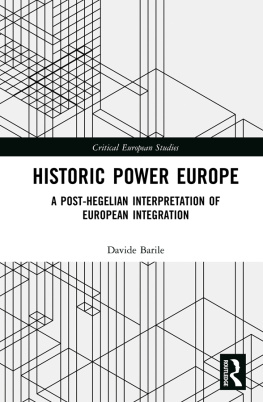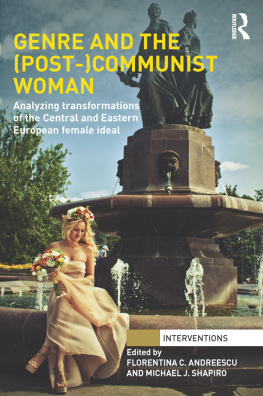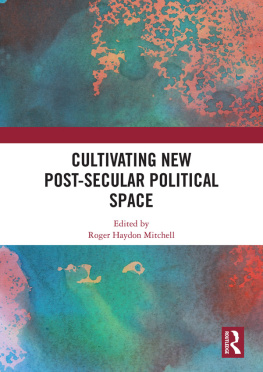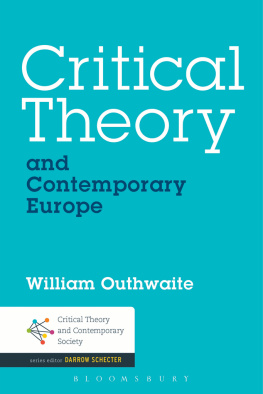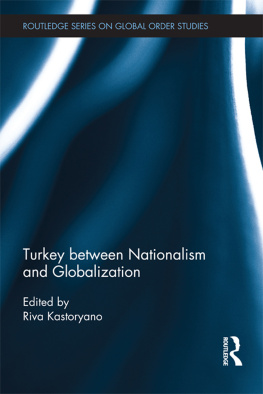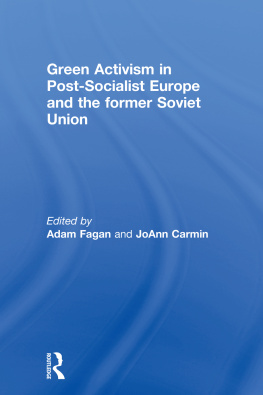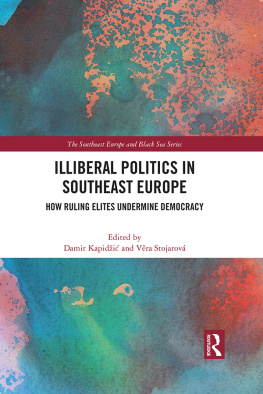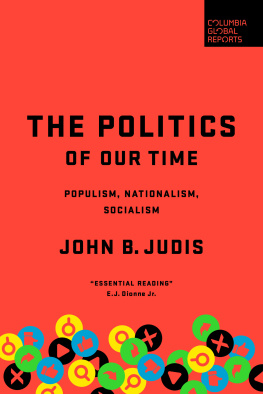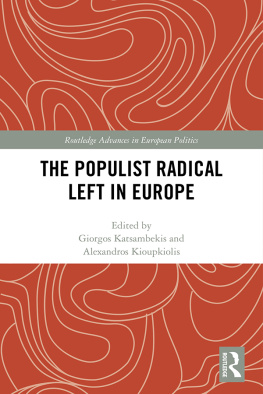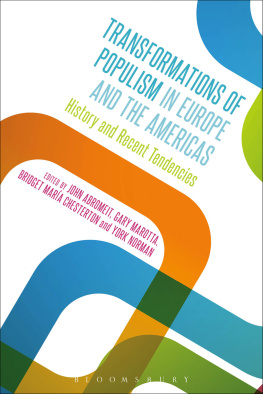Multifaceted Nationalism and Illiberal Momentum at Europes Eastern Margins
This edited volume addresses the set of politically challenging issues that the advent of populist movements raised for individual nation states and the whole Europe.
Based on critical engagements with the extant scholarship in comparative politics, political philosophy, international relations, regional studies and critical geopolitics, this collection of chapters offers the interpretation of the contemporary populism as illiberal nationalism, and underscores its deeply political challenge to the post-political core of the EU project. The contributors discuss the deep transformations within the fabric of contemporary European societies that makes scholars rethink the post-Cold War hegemonic understanding of liberal democracy as the dominant paradigm destined to expand from its traditional hotbed in the West to other regions. This edited volume intends to stretch analysis beyond the conventional accounts of populism as an anti-elite and extra-institutional appeal to the general public for the sake of its mobilization against incumbent power holders, and look for more nuanced meanings inherent to this term.
The chapters in this book were originally published in European Politics and Society and the Journal of Contemporary European Studies.
Andrey Makarychev is Professor of Regional Political Studies at the University of Tartu, Estonia. The titles of his recent books all co-authored with Alexandra Yatsyk include Celebrating Borderlands in a Wider Europe: Nations and Identities in Ukraine, Georgia and Estonia (Nomos, 2016), Lotmans Cultural Semiotics and the Political (Rowman and Littlefield, 2017) and Critical Biopolitics of the Post-Soviet: From Populations to Nations (Lexington Books, 2020).
First published 2021
by Routledge
2 Park Square, Milton Park, Abingdon, Oxon, OX14 4RN
and by Routledge
605 Third Avenue, New York, NY 10158
Routledge is an imprint of the Taylor & Francis Group, an informa business
Introduction, 2021 Taylor & Francis
Chapter 1 2019 Alexandra Yatsyk. Originally published as Open Access.
With the exception of Chapter 1, no part of this book may be reprinted or reproduced or utilised in any form or by any electronic, mechanical, or other means, now known or hereafter invented, including photocopying and recording, or in any information storage or retrieval system, without permission in writing from the publishers. For details on the rights for Chapter 1, please see the chapters Open Access footnote.
Trademark notice: Product or corporate names may be trademarks or registered trademarks, and are used only for identification and explanation without intent to infringe.
British Library Cataloguing-in-Publication Data
A catalogue record for this book is available from the British Library
ISBN13: 978-1-032-00574-4 (hbk)
ISBN13: 978-1-032-00575-1 (pbk)
ISBN13: 978-1-003-17474-5 (ebk)
Typeset in Myriad Pro
by codeMantra
Publishers Note
The publisher accepts responsibility for any inconsistencies that may have arisen during the conversion of this book from journal articles to book chapters, namely the inclusion of journal terminology.
Disclaimer
Every effort has been made to contact copyright holders for their permission to reprint material in this book. The publishers would be grateful to hear from any copyright holder who is not here acknowledged and will undertake to rectify any errors or omissions in future editions of this book.
Andrey Makarychev
ABSTRACT
This introductory essay frames the set of politically challenging issues that the advent of populist movements raised for specific nation states and the whole Europe. Based on critical engagements with the extant literature in such disciplines as comparative politics, political philosophy, international relations, regional studies and critical geopolitics, this short article offers the interpretation of the contemporary populism as illiberal nationalism, and underscores its deeply political challenge to the post-political core of the EU project.
This special issue is one of the multiple attempts to peer into and hopefully unpack perhaps the most acute challenges confronting contemporary regimes of power in a wider Europe and reshaping political systems in many countries of the continent. These challenges come in different versions and under different names, each being subject to critique and contestation: right- and left-wing populism, national conservatism, or illiberal democracy. The variety of these concepts attests to the deep transformations within the fabric of contemporary European societies and makes scholars rethink the post-Cold War hegemonic understanding of liberal democracy as the dominant (post-)political paradigm destined to expand from its traditional hotbed in the West to other regions.
So far populism seems to be the most frequent generic characterization of the groups and movements on the rise in Europe and beyond it, and the titles of the articles collected in this special issue reflect the popularity of the term. However, our intention in this collection of papers is to stretch analysis beyond the conventional accounts of populism as an anti-elite and extra-institutional appeal to the general public for the sake of its mobilization against incumbent power holders (De Witte, 2018), and look for more nuanced meanings inherent to this term.
Having said that, we deem that the notion of populism mostly reflects the form in which this appeal is embedded, while the crux of the content constitutes a radical repoliticization of what might be dubbed European post-political order (Norman, 2017) grounded in technocratic policies of administrative and managerial elites. One may agree with Slavoj Zizek that
populism is inherently neutral: a kind of transcendental-formal political dispositive that can be incorporated into different political engagements Populism is the Lacanian objet a of politics, the particular figure which stands for the universal dimension of the political, which is why it is the royal road to understand the political. (Zizek, 2006, p. 553)
Against this backdrop, the rise of populism might be seen as one of the facets of the political which is an ontological dimension of each and every identity because it is constituted in and through its necessarily antagonistic relations with diverse others (Wenman, 2003, p. 60). To put it differently, the political cannot be reduced to governmental rationality or the composition and dynamics of power, for it indicates philosophy, a system of meaning/intelligibility within which politics manifests itself (Puumala, 2013, p. 952). Consequently, the attempts to eradicate political primacy from society are therefore not plausible (Thornhill, 2007, p. 514).
At least from the times of Hans Morgenthau political theorists (mostly of realist background) harshly criticized the liberal perception of politics as something that can eventually be suppressed (Cozette 2008, p. 670). More contemporary authors confirmed the widely spread belief that liberalism represents a desire to evade, displace, or escape from politics (Galston, 2010, p. 386) and achieve the post-political foreclosure where consensus is already established (Rawlsian liberalism) or is to be established in the long run (deliberative democracy) (Paipais, 2014, p. 361). It is in this sense, that illiberal nationalism challenges the whole model of Europe where potential issues are kept out of politics, whether through the operation of social forces and institutional practices or through individuals decisions to secure the acceptance of the status quo (Sepos, 2013, p. 265).

